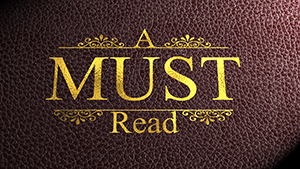Harper Lee’s “Go Set a Watchman”
 Anyone who has been following recent literary news has probably heard an intense amount of uproar regarding Harper Lee’s “new” book, Go Set a Watchman. Let me start off by saying this book was doomed in the public eye from the start. When an author writes a masterpiece like To Kill a Mockingbird and proceeds to stop writing for fifty-five years, no book could possibly live up to the hype. Making matters worse is that Harper Lee has the reputation of being a literary goddess, a feat that is significantly easier to achieve when you have only written one book. It has recently come out that Watchman was the first draft of Mockingbird… I’ll just let you think on that for a moment. I was actually distraught to find out that Watchman isn’t particularly great, regardless of what the “book” would eventually become. The story follows Scout in her twenties as she returns home to Maycomb, Alabama on an annual pilgrimage to see her family: chiefly her aging and ill father, Atticus Finch. The main plot revolves around the progression of the Civil Rights Movement, and the systematic destruction of her idolization of various Maycomb locals from her youth.
Anyone who has been following recent literary news has probably heard an intense amount of uproar regarding Harper Lee’s “new” book, Go Set a Watchman. Let me start off by saying this book was doomed in the public eye from the start. When an author writes a masterpiece like To Kill a Mockingbird and proceeds to stop writing for fifty-five years, no book could possibly live up to the hype. Making matters worse is that Harper Lee has the reputation of being a literary goddess, a feat that is significantly easier to achieve when you have only written one book. It has recently come out that Watchman was the first draft of Mockingbird… I’ll just let you think on that for a moment. I was actually distraught to find out that Watchman isn’t particularly great, regardless of what the “book” would eventually become. The story follows Scout in her twenties as she returns home to Maycomb, Alabama on an annual pilgrimage to see her family: chiefly her aging and ill father, Atticus Finch. The main plot revolves around the progression of the Civil Rights Movement, and the systematic destruction of her idolization of various Maycomb locals from her youth.
If this sounds like a strangely unfocused story, that’s mostly because it is. One of the principal plotlines of Mockingbird revolved around the trial of a black man accused of raping a white woman. The trial put the everyday life of Scout in context with a larger life-altering event. Watchman has a similar idea almost halfway through the novel, but the execution is clumsy, and the few key scenes of the book’s plot barely involve the matter. This is where you can tell that Watchman was an early draft of what would become Mockingbird: there are literary ideas present that closely mirror the first novel, but everything is heavy-handed, especially the dialogue, which often seems like characters are presenting speeches to one another.
Characterization is most likely the main controversy of this book, in that Atticus Finch, sagely lawyer extraordinaire, is shown attending meeting that are vehemently anti-black. I actually have to disagree with the complaints that Atticus was turned into a racist. If the attorney is to be believed, his views are much more against the segregation of state and federal government than they are against the black community (due to lack of any further exploration by the novel, I am going to take Atticus’ word on this one); he would rather delay the Civil Rights Movement than allow federal decisions to interfere with the state’s ability to govern its own people. His wider set of beliefs are very narrow-minded, and I can condemn the inconsistency of his federal vs. state views and his appeals made in To Kill a Mockingbird. Ultimately, the “Atticus situation” doesn’t disturb me so much as it does intrigue me at how far a character can grow after a lengthy editing process. Atticus of Watchman is an entirely different character than the one we grew up loving, mostly because he was only a template upon which Mockingbird‘s hero was based; the portrayals of characters in this first draft in no way reflect upon the characters from the first book. This is for the best, since many characters in Watchman are shoehorned into the typical roles you would see in any author’s first attempt at writing a book about small rural town life. Scout, herself, is handled decently, although she tends to become mentally incapable of processing simple situations from time to time, always prompting lengthy explanation from her elders. The saying, “Show me, don’t tell me,” comes to mind.
In the end, you aren’t going to enjoy Go Set a Watchman if you approach it as a sequel. Instead, see this book for what it really is: a fascinating look into the expansion of Harper Lee’s writing abilities, and a novel that belongs in college campus research libraries. The real concerns with Watchman should be technical, including the lack of a focused plot for much of the novel, the two-dimensional characterization, and the stiff and unwieldy dialogue. If you love Harper Lee’s work and want some insight into the evolution of Mockingbird, then Go Set a Watchman is a great read. For general enjoyment, however, there are better places to look.











